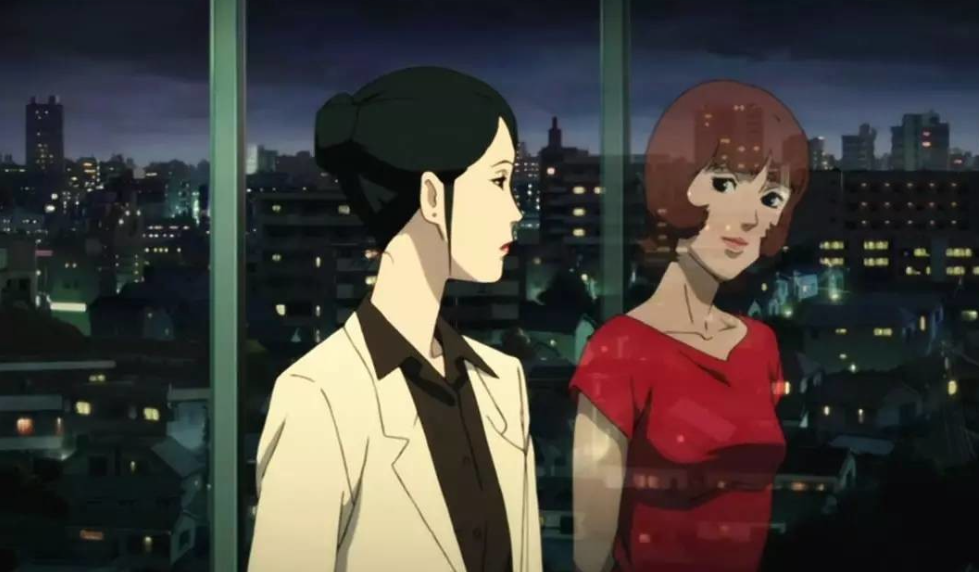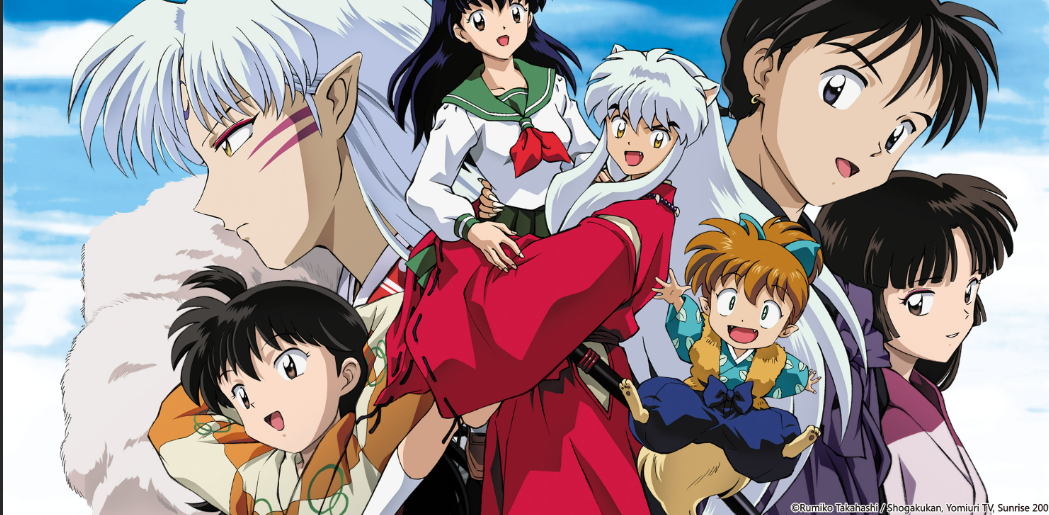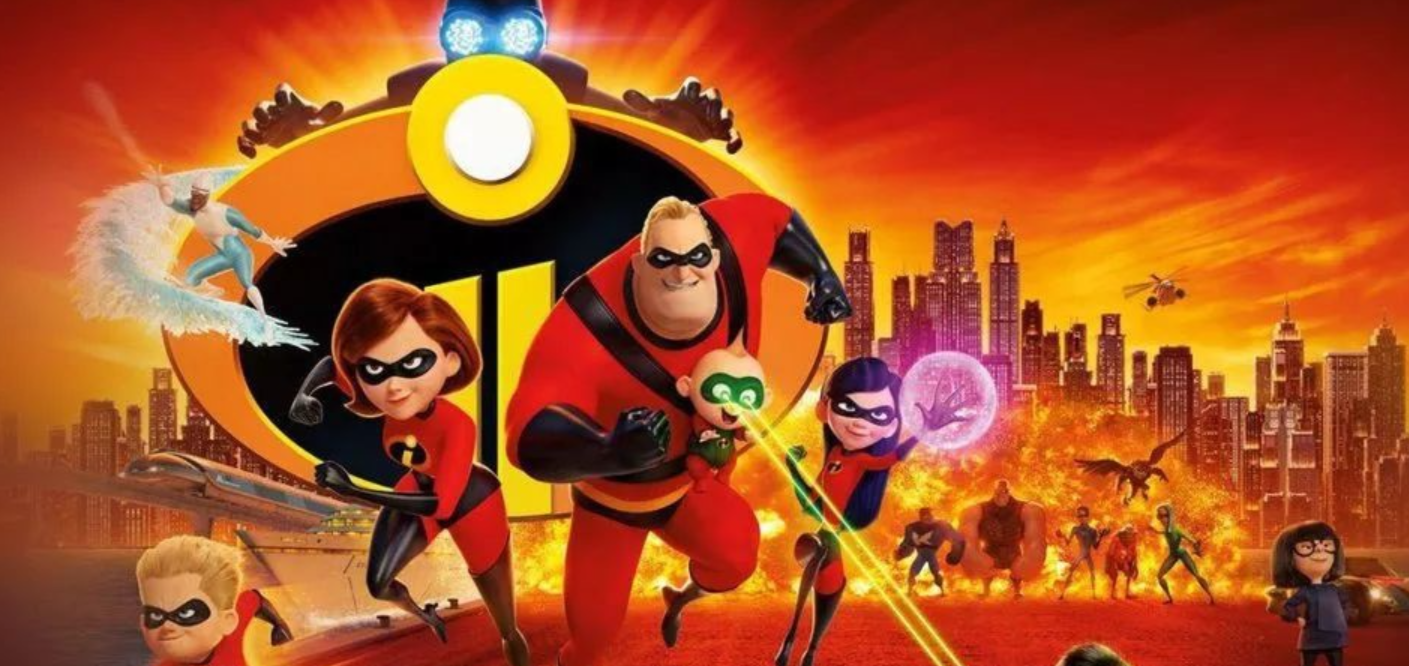
Red Pepper
Follow the vine of “Inception” and feel the melon of “Paprika”. Although “Red” is an animated film, it is much more complex compared to “Thief”.
Inception’s structural imagery of a dream world with one, two, three or four layers is indeed marvelous, but the story itself – which I think at its core is a love story – is washed out by too many gun battles. As a direct result, the structure overrides the story, and the story is relegated to a more secondary position, so it’s like a computer maze game that doesn’t concern itself, except for the structure, which is a shame.
Red” also has a good idea for the world in the dream world. But unlike “Thief”, the dream world of “Red” is an amplification of the real and a critique of reality. In this amplified scene, the director and screenwriter try to show the grotesque portrait of beings. Smoothing out the interwoven threads, I think “Red” tells several stories like this –
First, “You can’t judge people by their appearance, but there’s always a limit, right?” Atsuko Chiba has a crush on her smart, fat colleague Toccata, and understands that love is not based on looks, but there is still a hurdle she can’t overcome – Toccata, the train man, is too fat. So, this is a romantic story about a beautiful woman who falls in love with a fat man.
Second, Atsuko’s doppelganger Paprika cures the Pink River police officer, whose illness is caused by the fact that he gave up his dream of becoming a movie star when he was young and became a regular police officer, a boring choice that he couldn’t let go of for a long time, even to the point of not wanting to watch movies anymore. So, this is a story about how to make the dream into reality again.
Thirdly, the source of nightmares mixed with disturbance of the normal mind is the paralyzed old and decrepit councilor who wants to manipulate the world in his dreams, but this is not a story that simply magnifies evil and then good triumphs over evil. Because he does not want to face the paralysis, the councilor wants to grow two strong and solid legs in his dream; because he does not want to face the old and decrepit, the councilor wants to borrow the young flesh of Koyamauchi in his dream; because he does not want to face the passage of time, the councilor wants to control the whole world in his dream. In the end, the desire for youth, soundness and vitality goes to the opposite direction and becomes a dark element that confuses the councilor’s mind. So, this is a story about how we live in the face of old age, sickness and death.
Fourth, Koyama-chi is another tragic character. He is jealous of Toccata’s talent and at the same time secretly in love with Atsuko. He sells his body to the director both because of his obsession with his profession and to get Atsuko’s love, even if only for possession (no more shame and hesitation in the dream world). So when Paprika lies before him, despite the roughness, he does not comply with the Councilor’s order to execute her. Even when the councilor came from behind the curtain to the front of the stage and tried to end Paprika (also known as Chiba Duns) with his own hands, he tried his best to stop it. So, this is a sad story about love but do not know how to express it.
Finally, there is the parade of dolls that appear from time to time in the film. They are all real people in real life, but they are manipulated by the director because of the dream world and become dolls that have lost themselves. In the final scene where the dream world merges with reality, people turn into dolls and join the procession. The director uses an extremely materialistic way to show the material itself – those who want to be rich become fortune cats, those who want to be beautiful become make-up boxes, and the lewd man who steals the bottom of a woman’s skirt simply becomes a cell phone with a photo function …… This absurd expression is harshly this absurd expression pointed to the reality: what happened to this society? So, this is a story about how to look at the material and spiritual.
For the film itself, this kind of dramatic description is too bad. But beyond the structure and imagination, “Red” doesn’t forget the story itself. It’s also true that this hodgepodge platter is hard to bring into the emotion, even if the viewer has to enrich his or her own imagination of the story. Compared to “Theft”, which is a very cool game, “Red” is more like a book, with interwoven clues and careful consideration behind each one, which is still worth remembering.


